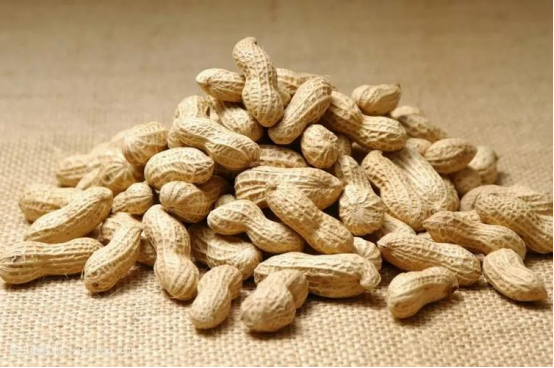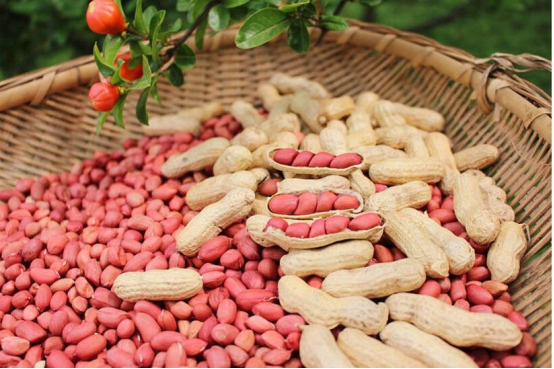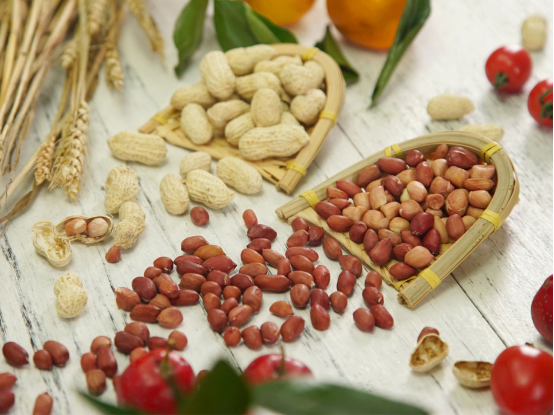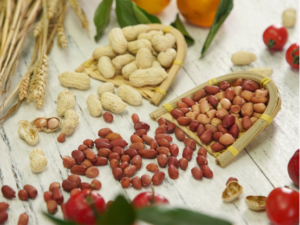Peanuts are rich in nutrition, containing protein, fat, sugar, vitamins, calcium, phosphorus, iron and other nutrients, which have the effect of promoting the development of human brain cells and enhancing memory.
Nutritional value
The protein in peanuts is not much different from animal protein and does not contain cholesterol, peanut protein has a biological value of 58 and a protein titer of 1.7, and its nutritional value is second only to soy protein in plant protein.

Peanut fruit also contains fat, sugar, vitamin A, vitamin B6, vitamin E, and vitamin K, as well as the minerals calcium, phosphorus, iron, and other nutrients, contains 8 kinds of amino acids and unsaturated fatty acids required by the human body, including lecithin, choline, carotene, crude fiber, and other substances. Peanuts contain choline and lecithin, which are rare in general grains, which can promote the body’s metabolism, enhance memory, and can be intellectual, anti-aging, and prolong life.
Medicinal value
Anti-aging: The catechins and lysine contained in peanut fruits have an anti-aging effect on the human body.
Coagulation and hemostasis: peanut fruit coating contains oil, vitamins, and contains substances that shorten the clotting time, can resist the dissolution of fibrin, promote the function of bone marrow to produce platelets, have a hemostatic effect on a variety of bleeding diseases, have a certain therapeutic effect on the primary disease, and are beneficial to the human hematopoietic function.
Blood nourishment and milk: The fatty oil and protein in peanut fruits have the effect of nourishing qi and blood and nourishing blood lactation for women who lack postpartum milk.

Promote development: peanut fruits are extremely high in calcium, calcium is the main component of human bones, so eating more peanuts can promote the growth and development of the human body.
Enhance memory: Lecithin and cerebral phospholipids in peanut fruits are important substances required by the nervous system, which can delay the decline of brain function, inhibit platelet aggregation, and prevent cerebral thrombosis. Experiments have confirmed that regular consumption of peanuts can improve blood circulation, enhance memory, and delay aging.
Diet Therapy
Reduce cholesterol: linoleic acid contained in peanut oil can decompose
cholesterol in the human body into bile acids and excrete it from the body, avoid cholesterol deposition in the body, and reduce the incidence of a variety of cardiovascular and cerebrovascular diseases caused by cholesterol exceeding normal values in the human body.
Delay human aging: The zinc content in peanut fruits is generally higher than that of other oil crops. Zinc can promote children’s brain development, enhance the memory function of the brain, activate middle-aged and elderly brain cells, delay premature aging of the human body, and resist aging.

Promote children’s bone development: peanut fruit is rich in calcium, which promotes children’s bone development and prevents the occurrence of bone degeneration in the elderly.
Prevention of tumors: Resveratrol in peanut fruit and peanut oil is a natural chemo preventive agent for tumor diseases, which can reduce platelet aggregation, and prevent and treat atherosclerosis, and cardiovascular and cerebrovascular diseases.


